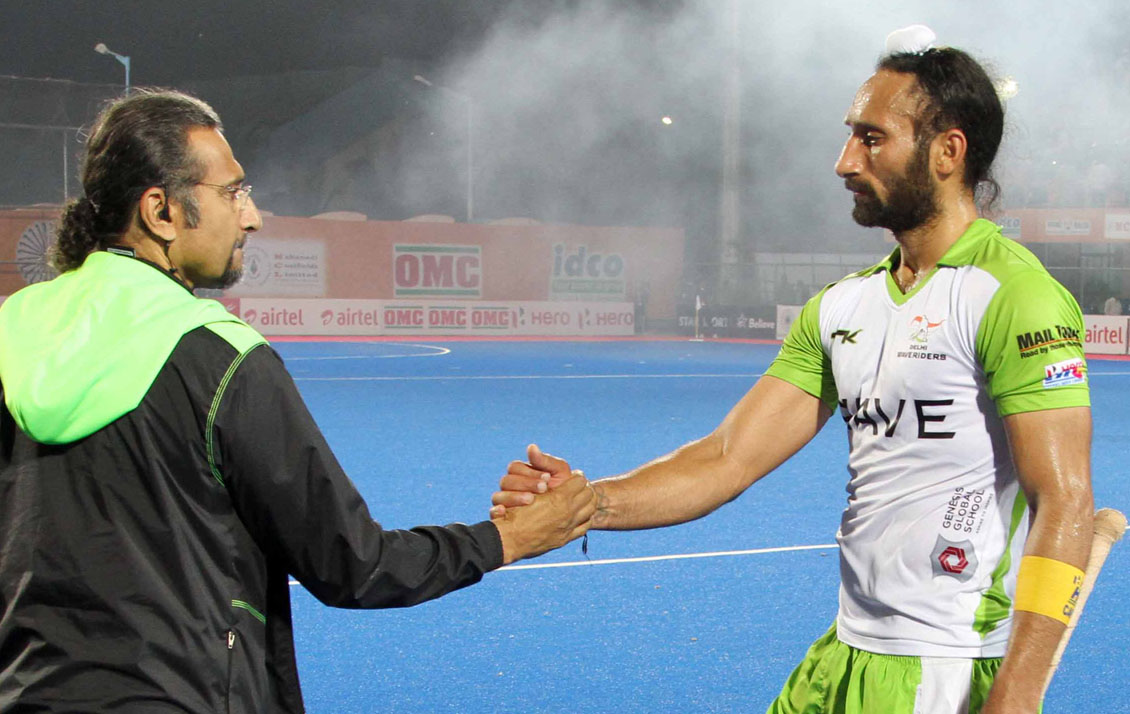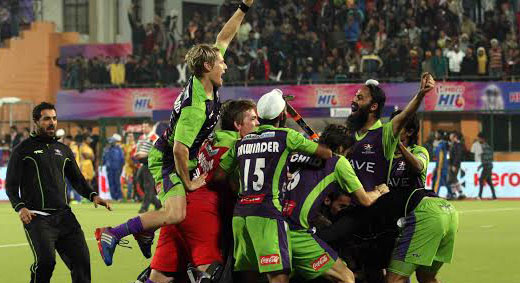Share
Cedric D’Souza: “2002 made me stronger”
Sportsmen live as long as sports do, and those who torment them perish as time wears on. This is in a nutshell latest piece of story in the case of successful coach and former Bombay player Cedric D’Souza.
Cedric D’Souza, a goalie in his playing days, lifted Delhi Waverriders, a franchise in the hockey world’s costliest entity, Hockey India League, from defending finalists to reigning champions, recently.
Delhi Waverriders defeated in-form Punjab Warriros, led by Jamie Dwyer and coached by Barrry Dancer, only coach to give Australian men their long due Olympic gold, last fortnight in the finals of the HHIL 2014.
But the same coach and his support staff, who gave India its first FIH title and a slot in the Champions Trophy in many years, underwent a humiliation of sort during the early 2000s. An episode that will dot the chequered modern history of India, forever.
When then Chief Coach Cedric was sacked midway through the 18-team Kuala Lumpur 2002 World Cup, the KPS Gill’s Indian Hockey Federation became the first National Federation in the hockey world to do so – chief coach asked to leave in between a tournament.
“This only made me stronger”, said Cedric who was recently in Delhi to participate in the thanksgiving party thrown by Wave group, owners of Delhi Waveriders.
“Yes, I had to return midway through, but it only made me to work harder and challenge myself, prove to myself”, the suave coach said with spark in his eyes.
Being the lone FIH Master Coach in India that time, Cedric felt that the global hockey community stood by him, and embraced him.
“Yes I left India, but the world took it on me. I got opportunity to train other nations and clubs in Europe. Never even a minute I was away from hockey sport”, he emphasized.
Cedric trained national hockey team of Greece, the host of the 2004 Olympics, in 2003 and 2004 giving a shot for the team to qualify for the home Olympics, which did not happen. Then, he went on to train clubs in Europe before relinquishing an assignment in Austria to take up HHIL 2014 responsibility recently.
With almost Asian teams in the pool, Cedric’s India was expected to well in the 2002 number, but it was not to be. India started their campaign with a draw against Japan before going down to Malaysia and South Korea.
Some of the loses were so close and the goals conceded were so astonishing that forced analyst Cedric casually comment: “I expect a divine intervention”.
Along the course, the IHF found fault in his choice of players, wanted Baljit Singh Saini, current Junior India coach, as substitute, not in the first eleven as Cedric used him despite prompting to this end by the IHF. Cedric, who trained the boys for long spells in Ipoh, did not listen, and had to face the axe.
“When the coach expect divine to intervene, why can’t IFH intervene,” said the IHF justifying its decision in a largely attended press conference in which Ric Charlesworth was present as a writer.
Cedric, his assistant coach Man Mohan and doctor Pugalenthi left Kuala Lumpur, leaving another assistant coach CR Kumar to continue with a just arrived doctor Tuli.
Earlier, Cedric’s boys won the First Champions Challenge in Kulala Lumpur in 2001 with Baljit Singh Dhillon at the helm, which gave India its entry for the Champions Trophy in six years, and then got India qualify for the World Cup despite shaky opener against New Zealand in the Manchester World Cup Qualifier, of which Narinder Batra was the manager.
Before returning to national scene in 2000 December, Cedric trained Indian team for the 2004 World Cup and 2006 Atlanta Olympics. India finished fifth in the World Cup while a distant seventh in the latter.
The HHIL 2014 has surely brought Cedric back in the limelight, as his team wins the Cup despite the presence of ‘world’s best’ coaches in charge of other franchises. Only time will tell as to which will be his next destination. The club in Austria, where he was till recently attached with, faces financial crunch, and for sure he is not going back immediately.




